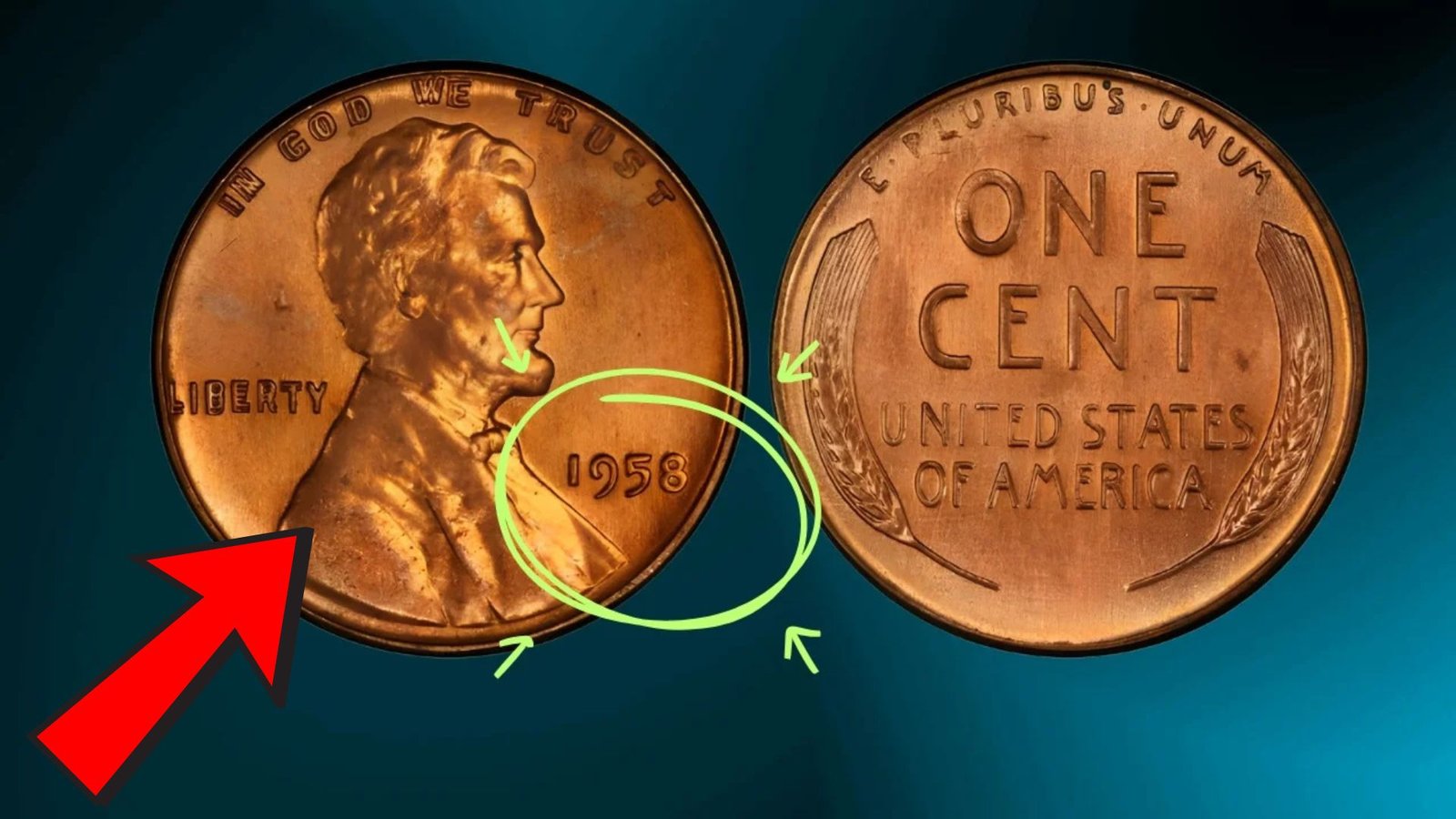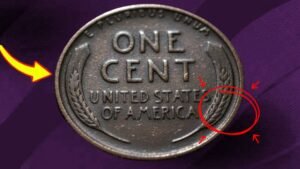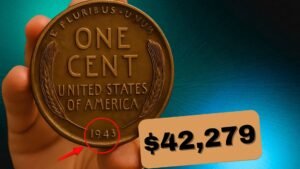Imagine finding a coin in your change that could be worth $144,000. It sounds impossible, right? Yet one rare Lincoln Wheat Penny could make that dream a reality. Every time you get spare change, you might be holding a small fortune without realizing it. Here’s how this unassuming penny became a collector’s obsession — and why it might still be out there waiting to be found.
What Is the Rare Lincoln Wheat Penny?
The Lincoln Wheat Penny, minted from 1909 to 1958, is one of the most iconic coins in American history. Its distinctive wheat ears on the reverse symbolize prosperity and growth. While most are worth just a cent, a few special varieties — due to minting errors or rare compositions — are worth hundreds of thousands of dollars today.
A Quick Look Back at Its History
Introduced in 1909 to commemorate Abraham Lincoln’s 100th birthday, the Wheat Penny replaced the Indian Head cent. It was the first US coin to feature a real person. During World War II, copper was scarce, leading the US Mint to experiment with other materials — and that’s where the story of the $144,000 penny begins.
Why Some Wheat Pennies Are Worth a Fortune
During 1943, pennies were made of zinc-coated steel instead of copper to save metal for wartime ammunition. However, a few 1943 pennies were accidentally struck on leftover copper planchets from 1942. These mint errors were never meant to exist, but a handful slipped into circulation. Today, these 1943 copper Wheat Pennies are among the most valuable coins ever discovered.
How Much Are Rare Lincoln Pennies Worth?
| Coin Type | Mint Year | Material | Approx. Value |
|---|---|---|---|
| 1943 Copper Wheat Penny | 1943 | Bronze (Copper) | Up to $144,000+ |
| 1944 Steel Wheat Penny | 1944 | Zinc-Coated Steel | $75,000–$125,000 |
| 1909-S VDB Lincoln Penny | 1909 | Copper | $1,000–$3,000+ |
| 1922 No D Wheat Penny | 1922 | Copper | $500–$1,000 |
| 1955 Doubled Die Wheat Penny | 1955 | Copper | $2,000–$15,000 |
| The 1943 Copper Wheat Penny tops them all, with verified sales exceeding $144,000 at major auctions. One near-mint specimen sold for over $204,000 in 2019. |
How to Identify the $144,000 Wheat Penny
You might already have one sitting in your change jar. Here’s how to spot it:
| Feature | Description |
|---|---|
| Date | 1943 (Look closely — most are steel gray, not copper) |
| Color | Copper or reddish tone, not silver-colored |
| Magnet Test | Real copper pennies are non-magnetic; steel ones stick |
| Weight | Copper pennies weigh about 3.11 grams, steel ones only 2.7 grams |
| If your 1943 penny fails the magnet test and looks coppery, you might be staring at a six-figure treasure. |
Expert Tips for Collectors
- Handle Carefully: Rare coins can lose value from scratches or cleaning.
- Get Certified: Have your coin verified by PCGS or NGC to confirm authenticity.
- Check Coin Rolls: Bank rolls or estate sales sometimes hide forgotten rarities.
- Learn Key Dates: Memorize key Wheat Penny years — 1909-S VDB, 1914-D, 1922 No D, 1943 Copper.
- Network with Collectors: Online forums, coin shows, and Facebook groups are treasure troves of tips.
Why It Still Might Be in Circulation
Believe it or not, experts believe a few 1943 copper pennies are still unaccounted for. With millions of coins in daily circulation, the odds may be slim, but not zero. Every year, stories emerge of collectors discovering valuable coins in jars, garages, and flea markets. It’s like finding a piece of history hiding in plain sight.
FAQs About the Rare Wheat Penny
Q: Can I find a 1943 copper penny today?
A: Yes, though extremely rare, some may still surface in old collections or rolls.
Q: How can I tell if mine is fake?
A: Many counterfeits exist. Always test with a magnet and seek professional grading.
Q: Why are these coins so valuable?
A: They combine rarity, mint error, and historical importance — a trifecta for collectors.
Conclusion: A Fortune in Your Pocket
The rare 1943 Lincoln Wheat Penny is a reminder that small details can hold enormous value. While most pennies go unnoticed, one lucky discovery could rewrite your financial story. So next time you get change, take a closer look — that humble copper coin might just be worth $144,000.




